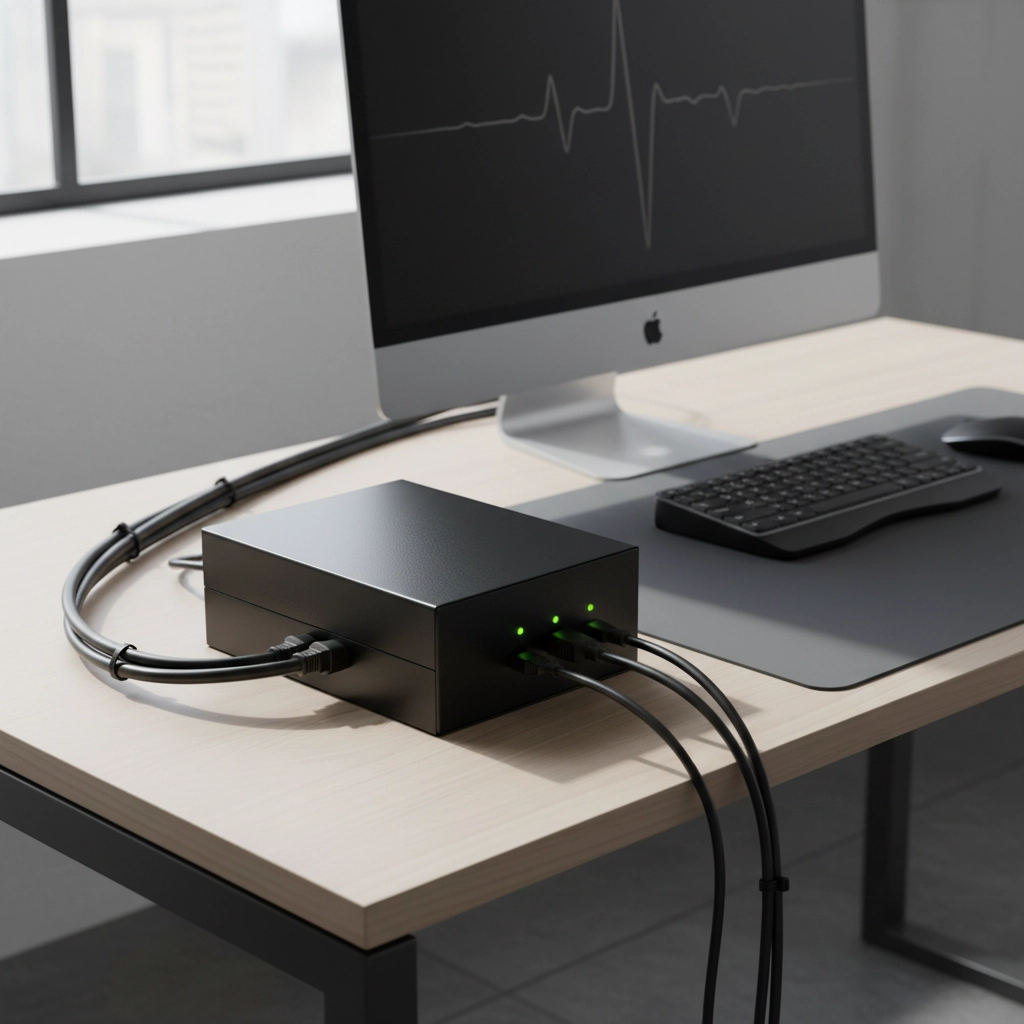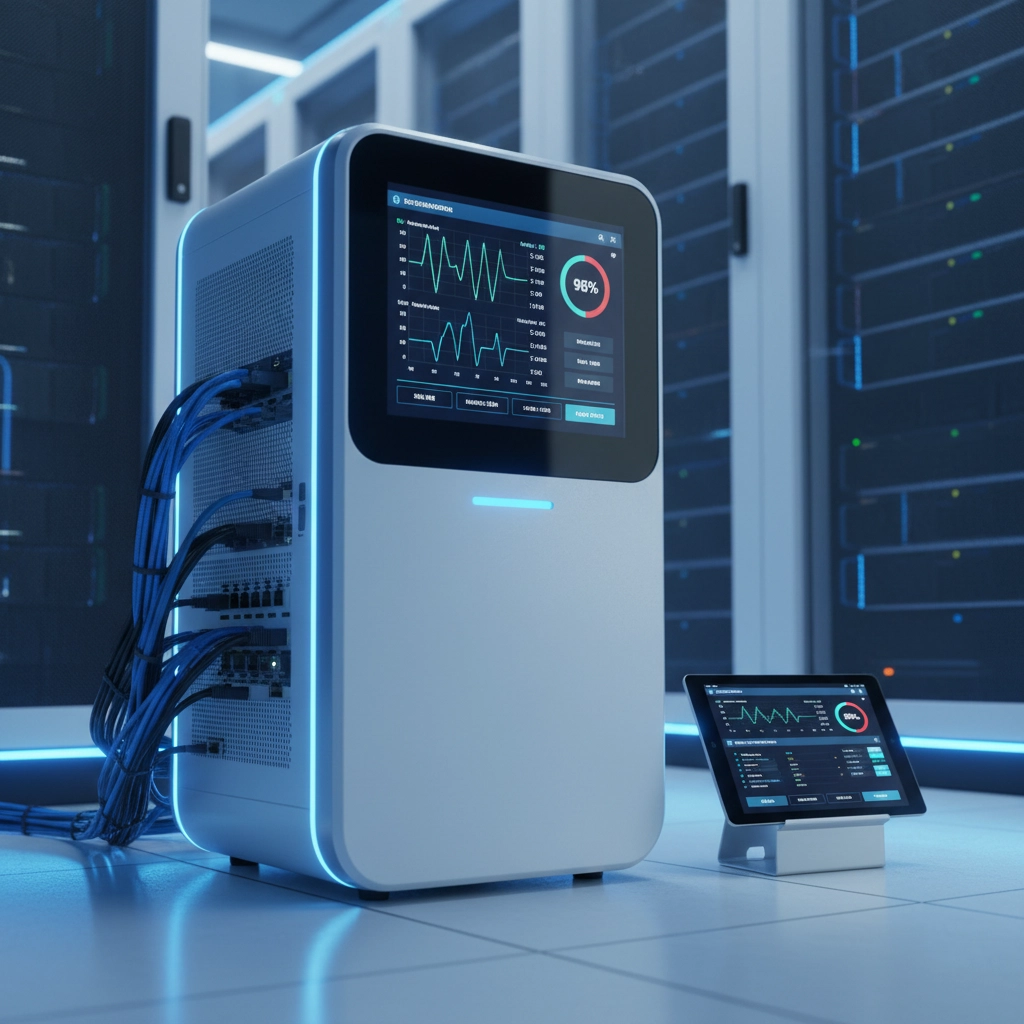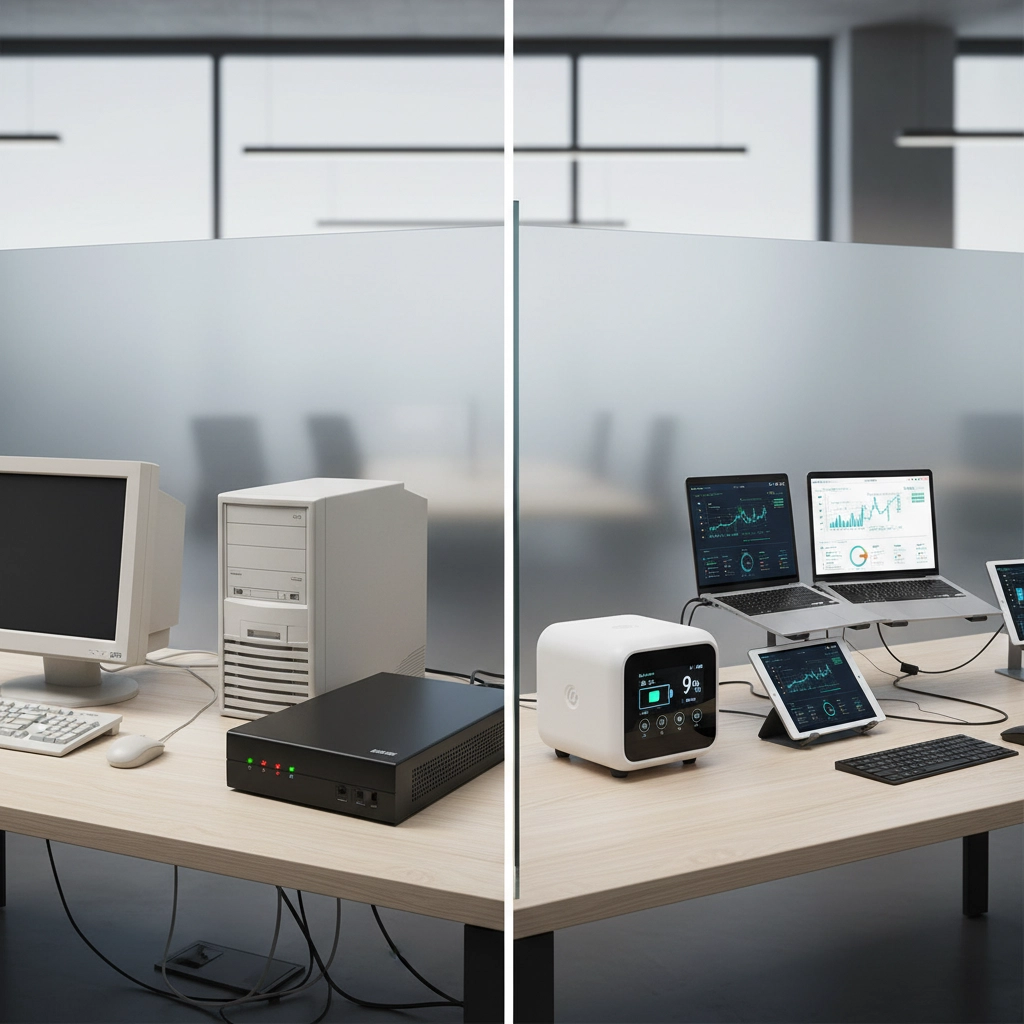
Are Traditional UPS Systems Dead? Why Smart Monitoring Is Taking Over
Share
If you've been wondering whether your trusty old UPS system is becoming obsolete, you're not alone. With all the buzz about "smart" everything these days, it's natural to question whether traditional uninterruptible power supplies are heading toward the tech graveyard.
The short answer? Traditional UPS systems aren't dead, but they're definitely getting overshadowed by their smarter cousins. Here's what's really happening in the power protection world and why smart monitoring is changing the game completely.
Traditional UPS: The Reliable Workhorses
Let's be honest – traditional UPS systems have been the backbone of power protection for decades, and for good reason. These systems do exactly what they promise: keep your equipment running when the power goes out, protect against surges, and regulate voltage fluctuations.

Traditional UPS units are straightforward. When the power fails, the battery kicks in. When it comes back, they switch back to utility power and recharge the battery. Simple, reliable, and cost-effective – especially for small businesses that need basic protection without breaking the bank.
The strengths of traditional UPS systems include:
- Lower upfront costs
- Proven reliability over decades
- Simple operation with minimal learning curve
- Readily available replacement parts
- No dependency on internet connectivity
But here's where things get interesting. While traditional systems excel at their core function, they operate in what's essentially a "black box" mode. You know they're working when the lights stay on during an outage, but beyond that? You're mostly flying blind.
The Smart Revolution: More Than Just Backup Power
Smart UPS systems are fundamentally changing how businesses think about power protection. Instead of just reacting to power problems, these systems actively monitor, analyze, and predict issues before they become critical failures.

Think of it this way: traditional UPS systems are like having a security guard who only tells you about problems after someone's already broken in. Smart systems are like having a security team that monitors everything 24/7, predicts trouble before it happens, and sends detailed reports to your phone.
Smart UPS capabilities that are game-changers:
- Real-time monitoring of power conditions
- Remote management through mobile apps and web interfaces
- Predictive analytics that warn about potential battery failures
- Integration with building management systems
- Detailed reporting and historical data analysis
- Automatic firmware updates and remote diagnostics
Why Smart Monitoring Is Taking Over
The shift toward smart UPS systems isn't just about having cool technology – it's about practical business needs that traditional systems simply can't address.
Predictive Maintenance Saves Money
Instead of replacing batteries on a fixed schedule (whether they need it or not), smart systems tell you exactly when batteries are degrading. This predictive approach can extend battery life by 20-30% and prevent unexpected failures that could cost thousands in downtime.
Remote Management for Distributed Operations
With more businesses operating multiple locations or supporting remote workers, the ability to monitor and manage UPS systems from anywhere has become essential. Smart systems let you check the status of UPS units across multiple sites from a single dashboard.

Integration with Modern IT Infrastructure
Today's IT environments are complex, with cloud services, virtualization, and interconnected systems. Smart UPS units integrate seamlessly with these environments, providing data that helps optimize overall system performance.
Compliance and Documentation
Many industries require detailed power quality documentation. Smart systems automatically generate the reports you need for audits and compliance, something traditional systems simply can't do.
The Numbers Don't Lie
Recent industry data shows that businesses using smart UPS monitoring experience:
- 40% reduction in unplanned downtime
- 25% lower total cost of ownership over 5 years
- 60% fewer emergency service calls
- 50% improvement in battery life management
These aren't just marketing numbers – they represent real savings that add up quickly, especially for businesses that can't afford unexpected outages.
Brand Leaders Driving the Change
Companies like APC by Schneider Electric are at the forefront of this smart monitoring revolution. Their SmartConnect technology transforms traditional UPS maintenance into a proactive, data-driven process. Instead of wondering about your UPS status, you get detailed insights delivered directly to your smartphone or email.
The APC Smart-UPS line, for example, includes built-in network management capabilities that provide real-time monitoring of input/output voltages, battery status, load levels, and environmental conditions. This isn't just convenience – it's about transforming power protection from a reactive necessity into a strategic advantage.
When Traditional Still Makes Sense
Despite all the advantages of smart systems, traditional UPS units still have their place. For small offices with basic needs, home offices, or situations where budget constraints are paramount, a traditional UPS might be the right choice.

Traditional UPS systems work well when:
- Your power protection needs are straightforward
- Budget is the primary concern
- You don't need remote monitoring capabilities
- The protected equipment isn't mission-critical
- You have on-site staff to perform regular maintenance
Making the Smart Choice
If you're deciding between traditional and smart UPS systems, consider your specific situation:
Go smart if:
- You manage multiple locations
- Downtime costs you significant money
- You want to optimize maintenance schedules
- Integration with other systems is important
- You need detailed reporting and documentation
Stick with traditional if:
- Budget is extremely tight
- Your needs are very basic
- You don't need remote monitoring
- The learning curve for new technology is a concern
The Future Is Already Here
The truth is, we're already seeing traditional UPS systems become the exception rather than the rule in many business environments. As the cost of smart technology continues to decrease and the benefits become more apparent, the question isn't really whether smart monitoring will take over – it's how quickly the transition will happen.
Smart monitoring isn't just a nice-to-have feature anymore. For businesses that depend on continuous operation, it's becoming as essential as the power protection itself. The ability to predict problems, optimize performance, and manage systems remotely isn't just convenient – it's a competitive advantage.
Ready to Make the Switch?
Whether you're protecting a small office or managing enterprise-level infrastructure, the right UPS system can make all the difference between minor inconvenience and major business disruption.
At Ace Real Time Solutions, we help businesses navigate the evolving power protection landscape. From traditional reliability to cutting-edge smart monitoring, we'll help you find the solution that fits your needs and budget. Check out our complete UPS selection and discover how smart monitoring can transform your power protection strategy.
Don't wait for the next power outage to realize your current system isn't enough. Contact us today to discuss how smart UPS technology can keep your business running smoothly, efficiently, and profitably.
